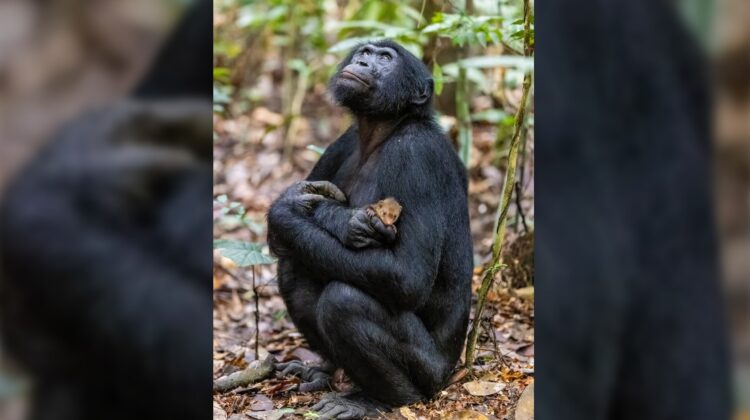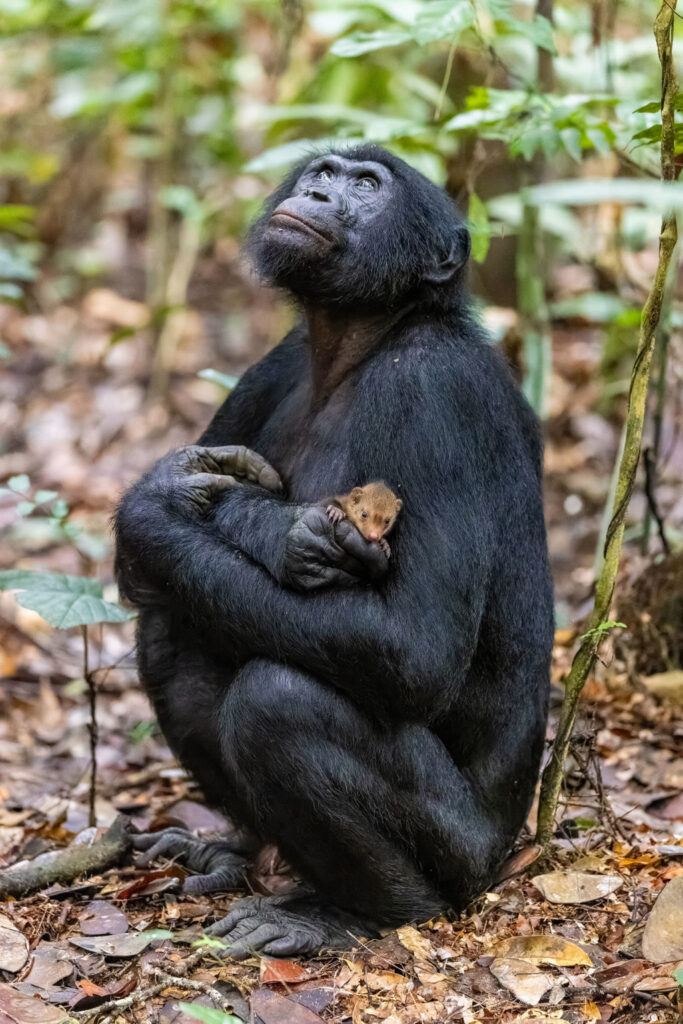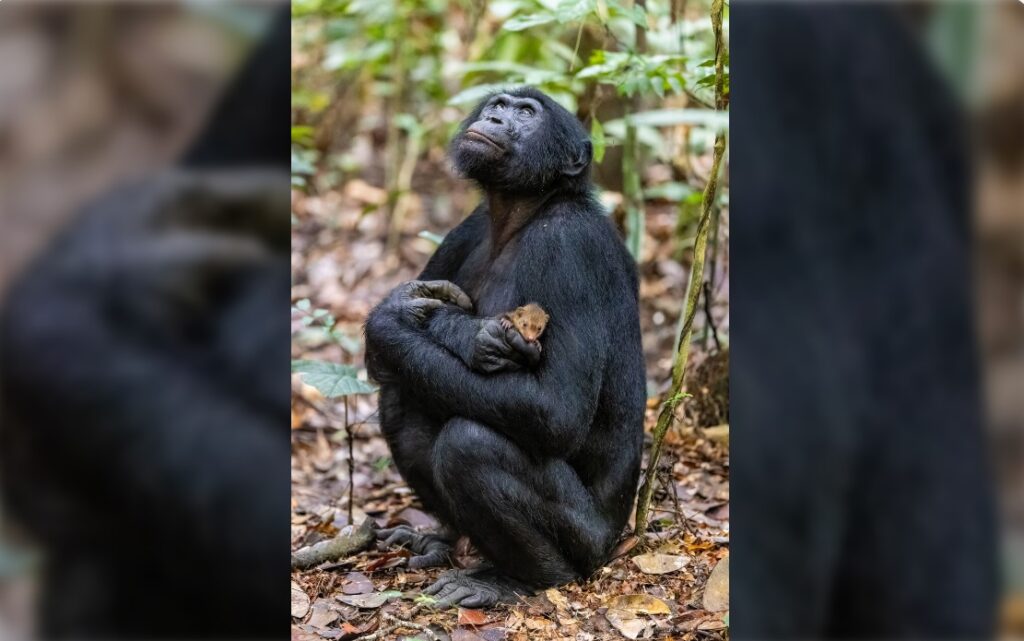
A captivating photo captured by photographer Christian Ziegler has made waves as one of the “most commended” entries in the Natural History Museum’s 2022 Wildlife Photographer of the Year competition. Featuring a wild bonobo seemingly cuddling a mongoose, the image evokes a sense of tenderness. However, the truth behind this apparent affection may be darker than meets the eye.
Ziegler, affiliated with the Max Planck Institute of Animal Behavior, collaborated with scientist Barbara Fruth to document the behavior of wild bonobos in the Congo, their native habitat. While the photo portrays a young male bonobo delicately holding a mongoose pup in the rainforest, the backstory reveals a more complex narrative.

Fruth and Ziegler were studying a bonobo group in the Congo, allowing them unprecedented proximity to the animals. Ziegler acknowledges the challenge of interpreting the ape’s intentions, stating, “Whether or not this demonstrates that bonobos can genuinely care for other species is a difficult question to answer.”
Historically known for their gentle and empathetic nature, bonobos in captivity have displayed care for individuals beyond their species. However, the dynamics change in the wild due to challenges such as food shortages, diseases, competition, and human activities. Bonobos, primarily herbivores, supplement their diet with mammals like duikers, small antelopes, and occasionally, species like the mongoose.
Fruth delves into the behavior observed in the wild, noting that while bonobos do not immediately kill their prey, they begin consuming it while it is still alive. The captured prey may include mothers with dependent offspring. Rarely, bonobos may keep leftover living prey as “pets,” although these instances often end with the prey being ingested later.

In the specific case depicted in the photograph, the male bonobo released the mongoose as it joined other social activities and continued its journey. Fruth emphasizes that the term “caretaking” may not be apt for this behavior in the wild, and the possibility exists that keeping “pets” could be a strategy to attract interest from other group members and enhance the handler’s status.
Bonobos, an endangered species facing threats from habitat loss and poaching, can benefit from support. Ziegler recommends Bonobo Alive, an organization aiding anti-poaching efforts and investing in environmental education to foster local appreciation for the forest. Contributions to this cause, he notes, are a valuable investment in preserving these intelligent and sociable animals.

Leave a Reply